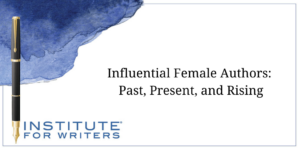
Influential Female Authors: Past, Present, and Rising
We’re going to look at influential female authors of the past, those impacting the present, and whom the industry expects to make a big splash.
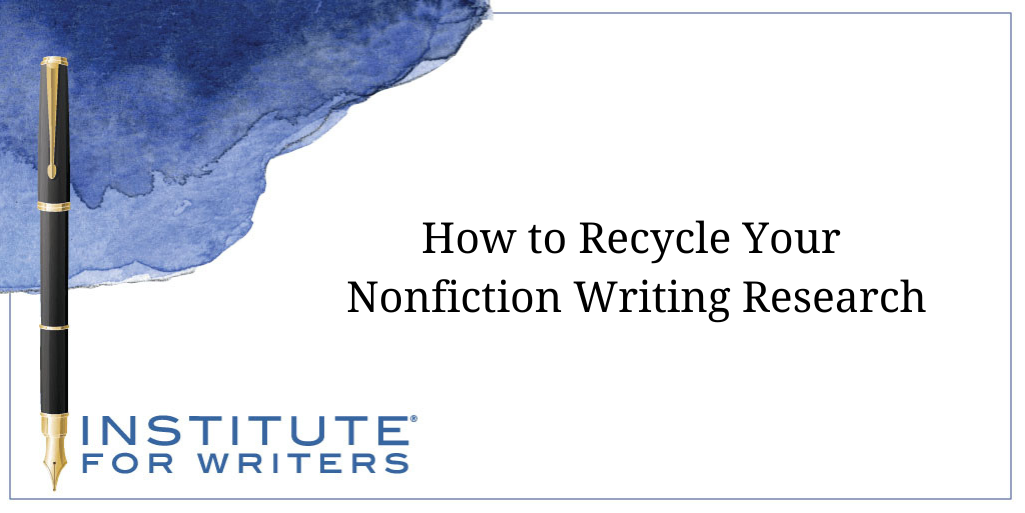
Have you done nonfiction projects that require research? As a writer, I’ve gathered lots of information I didn’t use in the finished article, story, or book. Writing research takes time and energy—resources we want to use wisely. Fortunately, we can develop new projects from that unused material and even recycle the material we did use, producing more than one manuscript from our original research (or with a little more effort).
Ask yourself these questions as you explore the possibilities.
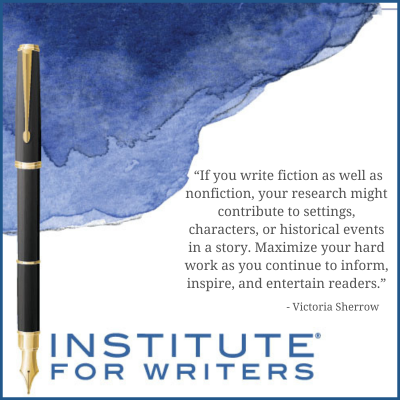 1. Are you interested?
1. Are you interested?
If you weren’t much interested or have lost interest, you might rather not revisit a topic, since our attitude can affect the quality of the writing. For instance, I once wrote a book on a scientific topic I found only mildly interesting. Afterward, I didn’t care to write more about that topic.
However, while writing books about the history of women’s sports, the Great Depression, the Gold Rush, endangered animals, and food safety, I collected material on related topics that interested me, leading to new manuscripts. When this happens, keep track of those ideas, using whatever system helps you preserve and organize material for future writing.
2. Will the topic attract enough readers to merit recycling?
Here, you might need to do market research to find the right publications, especially if the topic has limited interest. With book topics, you’ll want to check for any recent books on the subject.
3. Does the material meet an audience’s need for information and/or inspiration?
Is it writing research that will be of further interest to a particular group of readers? Or is it something they should know about?
4. Does the material needs an update?
Can you provide fresh anecdotes, quotes, and examples, and research any new developments?
If “yes,” read on.
 As you review previous projects, look for promising ideas. For instance, while writing about a city, you might have encountered interesting people or customs you didn’t include, or collected extra information about the things you did include.
As you review previous projects, look for promising ideas. For instance, while writing about a city, you might have encountered interesting people or customs you didn’t include, or collected extra information about the things you did include.
While writing about women in sports, I learned about unusual sports that were popular centuries ago. Several people I profiled briefly were interesting enough for a whole book or an article highlighting key events in their lives.
Suppose you wrote about the history of the U.S. foster care system. You probably learned what happens when people “age out” of foster care, how people qualify as foster parents, and/or famous people who grew up in foster care—material for more manuscripts.
A different slant or perspective can revitalize old writing research. Look for new “routes” to a subject, including historical, scientific, geographical, cultural, biographical, technological, or personal. Then consider who might like to read such a piece and “slant” your writing toward them. Returning to foster care: A parenting or family publication might be interested in the experiences of foster parents. An article about people who advocate for foster children might suit a history-oriented or religious/inspirational publication.
How about changing the age group?
 After completing an article advising people in their 30s and 40s how to save for retirement, one writer wrote a piece with advice from experts for people over 55 who lacked enough savings to retire by 65.
After completing an article advising people in their 30s and 40s how to save for retirement, one writer wrote a piece with advice from experts for people over 55 who lacked enough savings to retire by 65.
Biographical pieces for adults can become articles for children or teens if the subject suits young readers and the writer knows how to write for them.
Can you shape your material for a regional audience? After writing about annual festivals around the nation, one writer sold several pieces to regional magazines by focusing on festivals in their areas. If you wrote about attractions in various national parks for a travel magazine, you might sell articles to regional publications focusing on park(s) located nearby.
Different publications have different styles and audiences, so write accordingly. And remember to check your calendar of upcoming events and anniversaries. If you have material that ties in with, for example, the 50th anniversary of a historical event or a special celebration, send your manuscript at least eight months ahead of that date.
Take another look at your material. Could you change the format for additional submissions? Along with conventional articles, consider the following:

When recycling, don’t just repeat yourself or represent exactly the same old material as “new.” Using the same basic facts and writing research for multiple pieces of writing does not mean repeating the same sentences, paragraphs, or format.
We also must honor contracts with publishers, including clauses that state the author may not write something that would compete with the work they published. Editors of periodicals appreciate it when we don’t send too-similar pieces to closely-related markets. For instance, if you sold something to Family Circle, avoid sending something too similar to Woman’s Day.
So: What recyclables lurk inside your old files? Think inside and outside the box as you explore possibilities. Besides producing several pieces from one, you might find enough related material to start a book. If you write fiction as well as nonfiction, your writing research might contribute to settings, characters, or historical events in a story. Maximize your hard work as you continue to inform, inspire, and entertain readers.
Victoria Sherrow has published short stories, articles, poetry, and books for diverse age groups. Her books have received starred reviews and been honored by the American Library Association, National Association for the Advancement of Science, and NYPL Best Books for the Teenage, among others. Victoria’s most recent nonfiction book for adults is Encyclopedia of Hair: A Cultural History (ABC-CLIO, 2023). She loves helping her students tap into their experiences, interests, knowledge, and imaginations to create their own stories and books.

We’re going to look at influential female authors of the past, those impacting the present, and whom the industry expects to make a big splash.
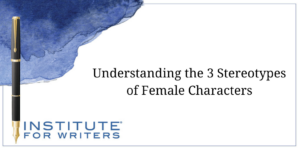
This week, we’re focusing on how we as writers can create strong female characters that others will look up to, instead of harmful stereotypes.
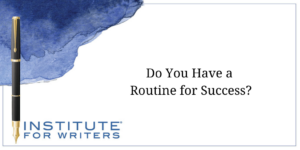
Is your writing routine reaching its potential? Maybe it’s time to take another look so you can see what’s possible for your writing.
1000 N. West Street #1200, Wilmington, DE 19801
© 2024 Direct Learning Systems, Inc. All rights reserved.

1000 N. West Street #1200, Wilmington, DE 19801
© 2025 Direct Learning Systems, Inc. All rights reserved.

1000 N. West Street #1200, Wilmington, DE 19801
©2025 Direct Learning Systems, Inc. All rights reserved. Privacy Policy.